On November 5th, Xiaomi released Xiaomi CC9 at the new product launch conference, which is also the second mobile phone of Xiaomi with 100 million pixel sensor.
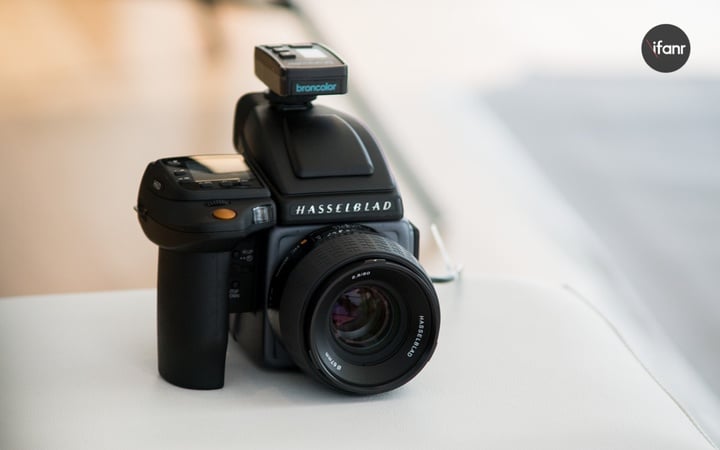
Speaking of 100 million pixels, the first thing that people think of is the medium format camera that is active in major studios and photo studios. These shovel can only be quietly supported on a tripod, which is difficult for ordinary people to use.
Even if Fuji introduces the more popular GFX series, its price and operation still have certain thresholds, and the public may not be able to accept it.
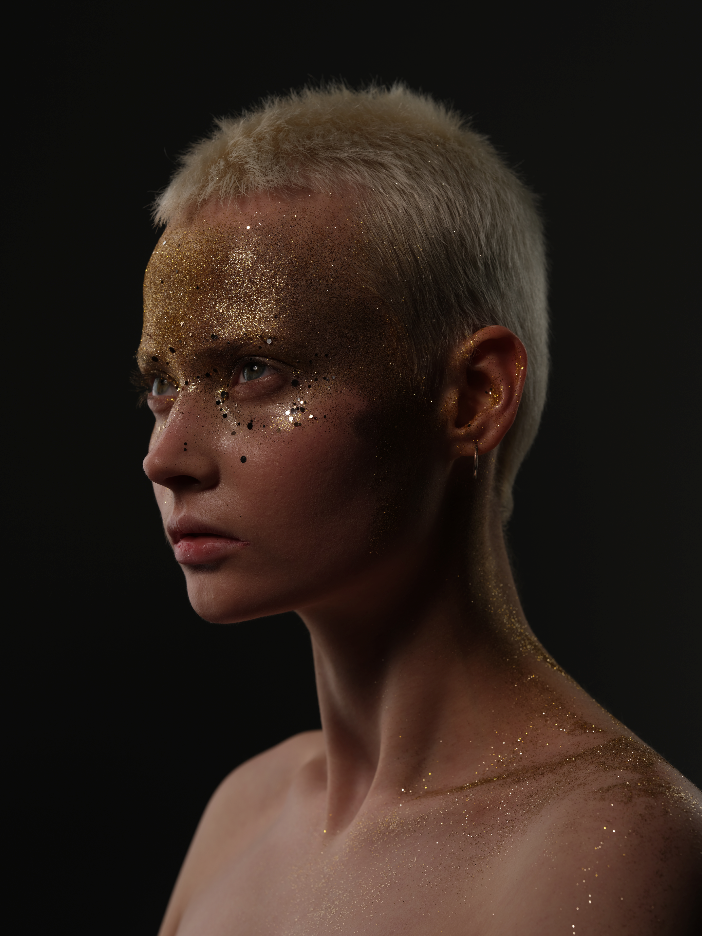
▲ Fuji GFX-100 proofs, single JPEG volume up to 80MB
More importantly, a single 100 million pixel photo is large. A photo takes up a few tens of megabytes of space, and it is inconvenient to transfer and share. So few people will buy a 100 million-pixel camera to record their lives. These cameras will only appear in professional shooting.
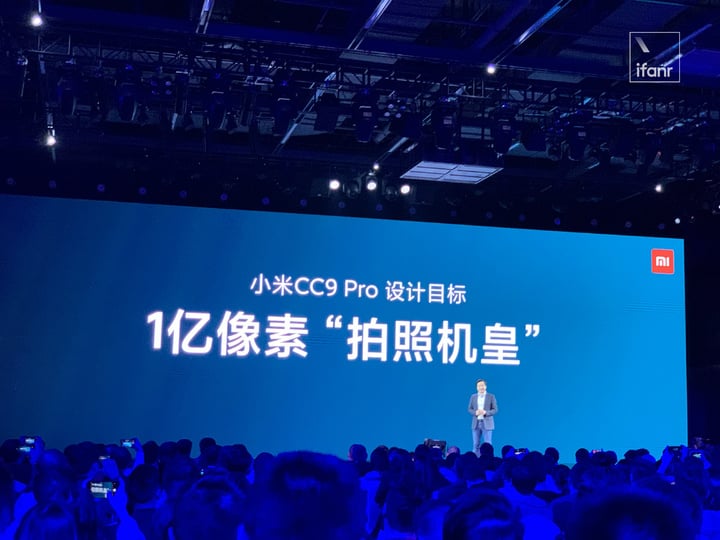
Today, the Xiaomi mobile phone equipped with Samsung sensor brings 100 million pixels to the mobile phone photo circle, which attracts the public’s attention and also raises the upper limit of the mobile phone photography pixel.
However, for the public, even if the mobile phone uses 100 million pixels, it still does not know where it is strong, and it is not clear what it means.
So, today we will come to explain to you, what is the use of 100 million pixels used by Xiaomi this time?
100 million pixels, where is the meaning?
To talk about 100 million pixels, you should start with Samsung’s sensor.
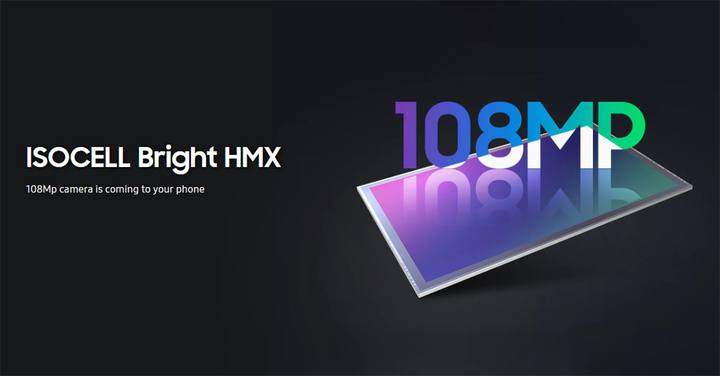
As early as August 12, Samsung released a sensor that supports 108 million pixels of ISOCELL Bright HMX, which is the first sensor in the mobile phone ring to reach 100 million pixels.
As the world’s first billion-level CMOS, the ISOCELL Bright HMX features a 1 / 1.33-inch outsole design. Although the sensor size is smaller than the 1/1.2-inch 4100-pixel CMOS sensor used in the Nokia 808, the ISOCELL Bright HMX is still larger than the popular 1/2-inch high-pixel mobile phone CMOS such as the Samsung GW1 and the Sony IMX486.
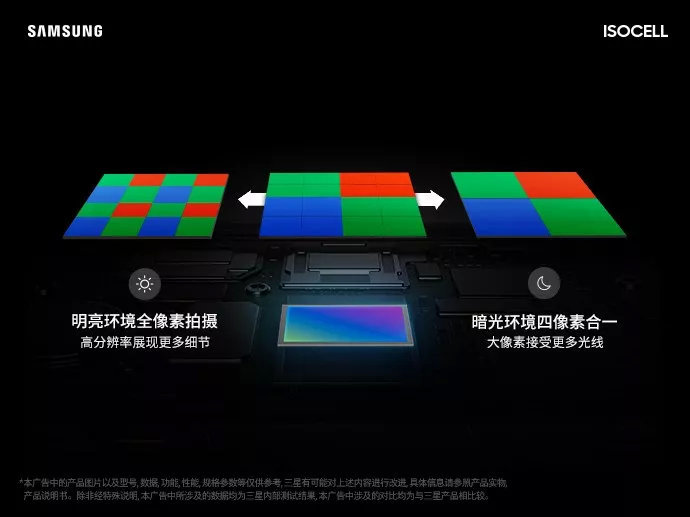
The three sensors have a single pixel size of 0.8μm, and the pixel size has not changed. The change is the size of the sensor.
As far as the current CMOS development is concerned, the volume of CMOS is equivalent to the volume of a bowl. Each pixel is equal to each grain. Under the same size of rice, a larger bowl can hold more rice. Then it is equivalent to a larger base, and more pixels can be stacked under the same single pixel area.
ISOCELL Bright HMX also supports Tetracell four-pixel synthesis technology, which can increase the single-pixel photosensitive area by four-pixel synthesis of one large pixel to enhance the imaging performance under low light.
Of course, it is the same as other high-pixel sensors, and it is still taking pictures in the 27-megapixel mode every day. There are only one special shooting mode in 100 million pixels, which needs to be manually turned on to use.
After learning about the ISOCELL Bright HMX sensor, I believe many users will ask:
I usually record my life. What is the use of the 100 million pixel shooting mode for me?
There is no need to use 100 million pixels on weekdays.
For mobile phone users, the meaning of high pixels is actually zooming in.


MoreThe pixel means that there is more room for zooming in and another way to achieve high zoom. If the user wants to shoot distant objects, there are high pixels to do the basis of the enlargement, and the shots will be clearer.
In this case, manufacturers do not need to spend more time on the phone’s telephoto lens and zoom. With the high-pixel sensor and the corresponding optimization algorithm, the mobile phone can enhance the digital zoom effect.
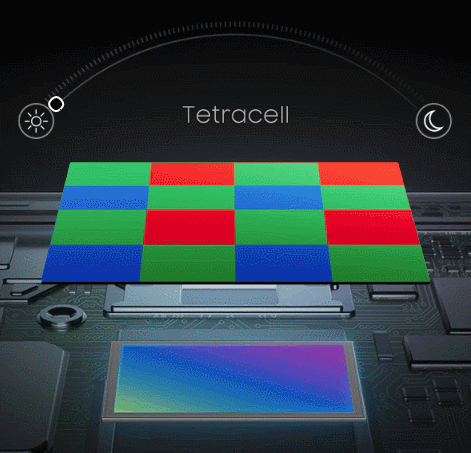
In addition, the 100 million pixel sensor can output 27 million pixels after four pixels. In this low light environment, the camera pixels will not be too low, which is good for retaining the details of the picture.
Compared with the Samsung GM1 with 12 megapixels left after four pixels, the 27 million pixels actually have a bit of digital zoom. If there is a user who wants to do further zooming or zooming, the 27-megapixel ISOCELL Bright HMX will still meet the demand, which is also the advantage of high pixels.
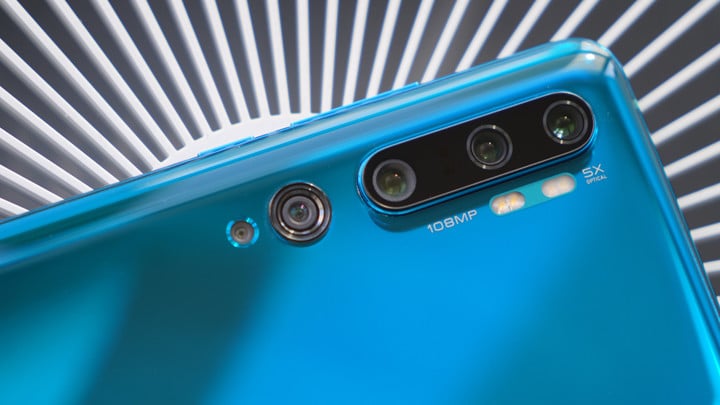
Overall, ISOCELL Bright HMX brings 100 million pixels to mobile phones, mainly to give users more digital zoom space.
Although the ISOCELL Bright HMX’s pixel and sensor sizes are larger than the previous high-pixel sensors, it satisfies the needs of people and vendors for marketing parameters. Shooting in 100 million pixel mode, the resolution and detail of the photos are stronger than 64 million pixels and 48 million pixels.
But if you only understand it from the perspective of actual experience and usage, these are not the key points that ISOCELL Bright HMX needs to highlight.
With the simplest digital zoom, it brings higher magnification to the mobile phone users, and also reduces the cost of developing and using the telephoto and zoom lenses of the mobile phone. This is the core of the high-pixel sensor.
After replacing 100 million pixels, will the mobile phone photo become better?
This is a question many users will ask.
For digital photos, pixels are one of the core factors in determining image quality. The size of the total number of pixels, which determines the size of the photo, will also affect the image resolution.
As Ai Faner mentioned in the evaluation of Xiaomi CC9 Pro, in the case of good light, 100 million pixels will bring a great resolution advantage of 12 million pixels and 48 million pixels than the mainstream, 12 million If you look at it, 48 million is to see clearly, the details of the 100 million pixel exaggeration point, it can be said that it is overflowing the screen.
At this time, if you look at the magnified picture, you can see the obvious advantages.

▲ contrast effect proofs; Xiaomi CC9 Pro (left) and iPhone XS (right)
In addition, CELL Bright HMX has increased the sensor size to 1/1.3 in order to fit this billion pixels with a single pixel size. After the sensor area becomes larger, the equivalent coefficient will also change. After the equivalent coefficient changes, the angle of view and depth of field effect of the shot will also be affected.
It can be seen from the figure that the Xiaomi CC9 Pro and the iPhone XS have no blur effect when the distance between the objects is the same, and the Xiaomi CC9 Pro can also see some blurring effects. Here, it is the effect of the sensor size becoming larger. Although not directly related to pixel boost, CELL Bright HMX increases the size of the sensor to increase the total number of pixels, which is considered to be a function of the increase in the total number of pixels.
The depth of field change is actually a by-product of the sensor size change. The biggest highlight of the CELL Bright HMX sensor is actually the improvement of image clarity and resolution. Without magnifying, the details on the windows on the surface of the building, as well as the texture on the outer wall.
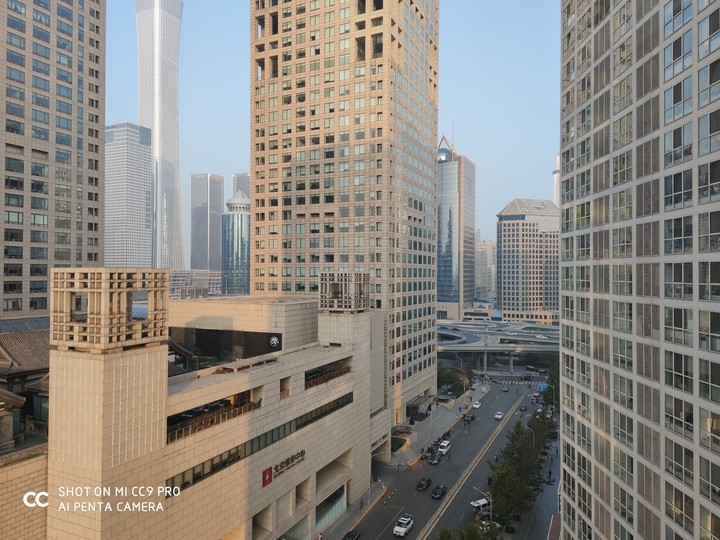
▲27 million pixels
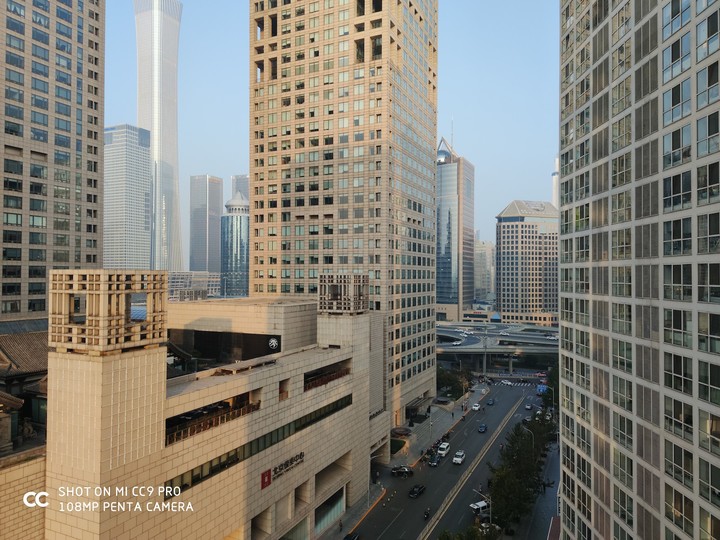
▲ 108 million full pixel mode
Speaking that so many high-pixels can bring better image resolution and a larger amount of image information, but the pictures taken by high-pixel images will definitely look better? Not necessarily.
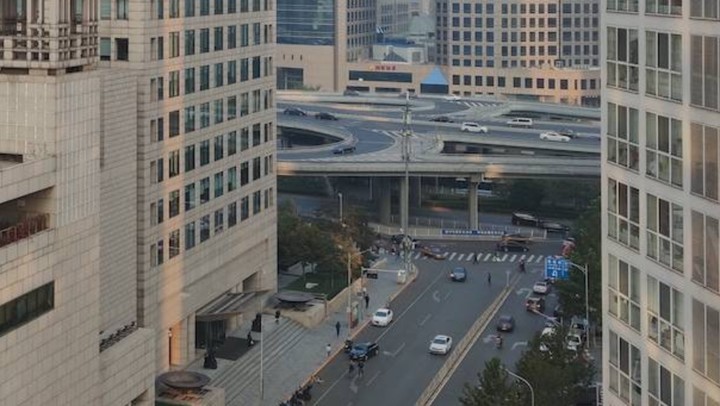
▲27 million pixel screenshots

▲ 1.08 billion pixel screenshots
It can also be seen in the same set of proofs that the Xiaomi CC9 Pro cannot turn on image processing such as automatic HDR in the 108 million full-pixel mode. Without the aid of these algorithms, the latitude of the 108 million full-pixel model is generally versatile, and the processing of the dark portion is not as good as the 27-megapixel 4-in-1 mode.
In addition to the outstanding resolution and detail processing, the whole photo is relatively flat. The space that can be adjusted later is not necessarily more than the 27 million pixel four-in-one mode, so the photo perception may not be better than The 27 million pixel mode is good.
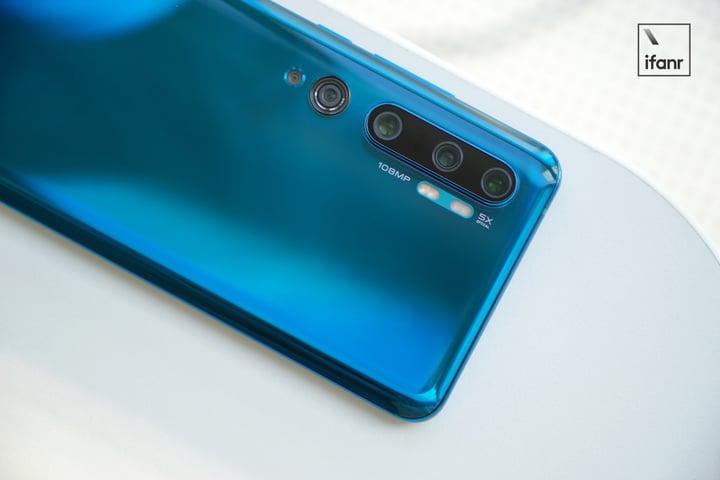
This is actually a trade-off.
Because of the large amount of information on these high-resolution photos of 48 million, 64 million, and 100 million pixels, mobile phones are more difficult to handle.
Therefore, in order to reduce the processing pressure of the mobile phone, the mobile phone also reduces the use of the algorithm in the high pixel mode, and the processing effect is naturally not as obvious as in the low pixel mode.
In this way, the high-pixel mode is like a child with a partiality. The resolving power and detailing are the things they are good at, and the performance will be more prominent. But other tolerances, such as tolerance, are algorithmically assisted. It may not be as comprehensive as the four-in-one pixel mode. This is one of the reasons why the look and feel of the photo may not be better than the normal mode after the high pixel mode is turned on.
How big is the difference from the camera?
After using a larger 100-megapixel sensor, does the phone have the ability to challenge the camera camp?
In order to understand the difference between high pixel and camera, we also made a simple comparison between Canon EOS 5D Mark iii and Xiaomi CC9 Pro.

▲ Xiaomi CC9 Pro

▲ EOS 5D Mark iii
In the comparison proofs, we can see that the Xiaomi CC9 Pro with a 100-megapixel sensor has a good performance in image resolution, which is in contrast to the EOS 5D Mark iii with a 24 megapixel full-frame sensor. Not too big.
It should be clear here that the EOS 5D Mark iii is not a full-frame, high-pixel body. If it is more than pixel and image resolution, it has little advantage. If you replace the EOS 5DS series like the same door or the Nikon D8X0 and the Sony α7R series and other high-powered body, the advantages of the camera will be more obvious.

▲ Xiaomi CC9 Pro

▲ EOS 5D Mark iii